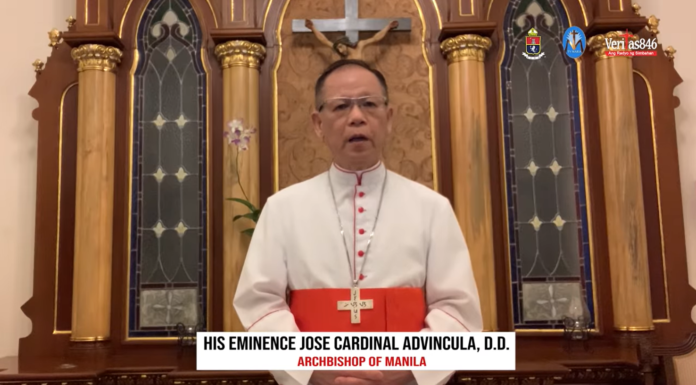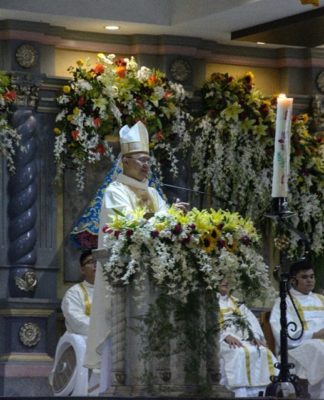Twenty years after the Philippines achieved the world-history feat of deposing a corrupt and repressive dictatorship through the peaceful People Power revolution, the constitutional order is threatened by military adventurism that seeks to restore the military dictatorship of the discredited past by riding on the crest of popular protest that is a mixture of righteous indignation, political opposition maneuvering, Estrada and Marcos recidivism, communist agitprop, and sheer mercenariness.
The unrest in the military and the body politic at large may be understandable, fueled no doubt by the lingering questions about the legitimacy of President Macapagal-Arroyo. The questions may not have been answered, but there’s no constitutional or democratic basis for any so-called people power movement against the government. Even the Catholic bishops in their statement last month have flatly rejected any extra-constitutional challenges to resolve the crisis: “(W)e do not condone resort to violence or counter-constitutional means in resolving our present crisis. These measures would not only bring about new forms of injustice, more hardships, and greater harm in the future.”
Therefore, we Thomasians declare our opposition to any putsch and attempt to grab power and destroy our constitutional order. We urge all Filipinos to do likewise.
To make parallelisms between the People Power revolt of 1986 and the coup against President Macapagal-Arroyo is foolhardy. The times today are different. The period prior to 1986 was a dark era of human rights abuses and authoritarian rule. What we now have is an era of relative peace, characterized by the existence of democratic institutions, the very same democracy that so many Filipinos risked life and limb to win back in EDSA in 1986.
The military adventurists and misfits should recognize that only civilian support can protect their cause – and their life. Despite the readiness of certain opposition and leftist groups to support their cause, the putschists are bereft of any widespread popular support. That same support may not exactly translate to support for the Macapagal-Arroyo administration, but it is enough to buttress the constitutional order. The majority of the people know the use of arms will only destroy the very democracy that serves as foundation of our tottering republic.
Perhaps in order to better appreciate the need for all Thomasians and Filipinos to reject the putschists and their cohorts, they should be reminded that, warts and all, the nation has grown in democratic grace since 1986. Despite questions about her legitimacy, President Macapagal-Arroyo is a democrat who has used the instrumentalities of her democratic office in order to build a stronger government and a better order. Her performance of course leaves much to be desired. But definitely she is not in the mold of Ferdinand Marcos and tyrants like him who would destroy the fabric of the state and the best principles of society in order to perpetuate their rule.
Democracy is also characterized by the ability of the government to implement laws. Recently, the legislative realization of the anti-terrorism bill, the Anti-Money Laundering Law of 2001indicate a strong and willful government. The implementation of the Clean Air Act of 1999 has also alleviated the environmental living conditions in cities. But most resiliently, the implementation of the Expanded Value-Added Tax (E-VAT) this year has become the most convincing indication of strong government will.
More important, the efficient execution of E-VAT has also raised positive international opinion about the country. And with the nation’s recent positive economic performance, exhibited by the 5.1-per cent growth in the Gross National Product last year, and the unexpected surge of the Philippine peso (currently considered as Asia’s best performing currency), an international credit rating agency, Standard and Poor’s, has revised its outlook on the country’s sovereign credit rating from “negative” to “stable” this month, together with another rating firm, Fitch, which raised the Philippines to just two notches below investment grade.
But while we reject coups, we also condemn the attack on civil liberty, like the roundup of opposition figures without warrants of arrest or on warrants that are in cases decades old, and the closure of the Daily Tribune, which, despite its alleged irresposibility, is part of the private print media, not a government franchiser like TV and radio stations. To base these counterattacks on a presidential proclamation vague in its inception and legal basis is likewise anathema in a democracy.
Our nation leaves much to be desired. But we can improve only in a climate of freedom and reform that the legacy of Edsa continues to give us. That legacy is now threatened by misguided elements in the military and the political opposition.
EDSA is a reenactment of everyday human drama characterized by Juan dela Cruz’s battle to provide food for his family at day’s end. This battle against poverty, often usurped in news headlines by more sensationalist fare, is more real to many Filipinos because to many of them—about 26.5 million Filipinos below the poverty line in 2000, says the government—Philippine society is not equal. It is the job of the government, with the private sector, to alleviate the condition of the poor, so that they may use the gift of democracy to live a better life. We as a free and democratic people can work toward that end. We, Edsa children, have our mission cut out for ourselves.














